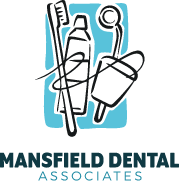Everyone wakes up feeling groggy sometimes, but if you spend your days wanting nothing more than to crawl back into bed, you may suffer from a serious sleep disorder called obstructive sleep apnea. In addition to chronic fatigue and daytime sleepiness, people with sleep apnea have a higher risk of heart disease, strokes, and falling asleep at the wheel. Luckily, a trip to the dentist can change all this. Mansfield, TX dentists, Dr. Blair Jones and Dr. Seth Harris, discuss the TAP appliance, a popular and effective treatment for snoring and sleep apnea only available from a dentist.
Understanding Sleep Apnea and Snoring
Although we tend to think of sleep apnea and snoring as the same problem, one key difference distinguishes one from the other. Regular snoring, even very loud snoring, occurs when the tongue, tonsils, or other throat tissues partially block the air passage during sleep. As you breathe, air moving past these tissues causes them to vibrate, creating the signature snoring sound.
With obstructive sleep apnea, excess or fatty throat tissues completely block the air passage. Since air can’t pass into or out of the body, you cease breathing. As your blood oxygen levels plummet, your brain goes into a state of panic, forcing your body to awaken with a loud choking or snorting sound. This cycle of breathing cessation followed by forced wakefulness means that sleep apnea sufferers never reach that deepest state of sleep needed to feel truly rested. Chronic exhaustion combined with lower blood oxygen levels leave sleep apnea sufferers facing a higher risk for problems such as:
- Hypertension (high blood pressure)
- Cardiovascular disease, including heart attacks
- Stroke
- Depression
- Impaired cognition and motor skill, resulting in impaired performance at work, school, and on the road
How Dentists Treat Sleep Apnea
When you think about it, it makes sense that your dentist could provide treatment options for sleep apnea. After all, sleep apnea and snoring are caused by problems stemming from the mouth and throat, both areas within the clinical purview of a general dentist. Dr. Blair and Dr. Jones both prefer to fit their patients with TAP appliances, a custom-fitted mouthpiece that repositions the jaw to keep the air passage open throughout the night. TAP appliances are easy to wear, do not intrude upon your normal sleep patterns, and can be adjusted to fit the dimensions of your mouth. Even better, research shows that they are an effective treatment option for patients with mild, moderate, and even severe sleep apnea.
Homecare Tips to Enhance TAP Therapy
Once you start wearing your TAP appliance, you will begin to feel more rested and able to concentrate. To complement your use of a TAP appliance, making the following lifestyle changes can further improve your quality of sleep:
- Avoid drinking alcohol or caffeinated drinks close to bedtime.
- Exercise regularly. Studies have shown that exercising four times per week for 40 minutes can decrease the severity of your sleep apnea symptoms by 25%. Exercise has also been shown to help you sleep better throughout the night.
- Lose weight. Even dropping 10% of your body weight has been linked to a dramatic decrease in the severity of snoring and sleep apnea symptoms.
About Mansfield Dental Associates:
At Mansfield Dental Associates, Dr. Blair Jones and Dr. Seth Harris share the same vision and philosophy when it comes to patient care. In addition to sleep apnea and snoring treatments, we provide a full range of general, restorative, and cosmetic dental services. Contact our Mansfield, TX dentist office at 817-473-6227 to schedule your next appointment.





Recent Comments